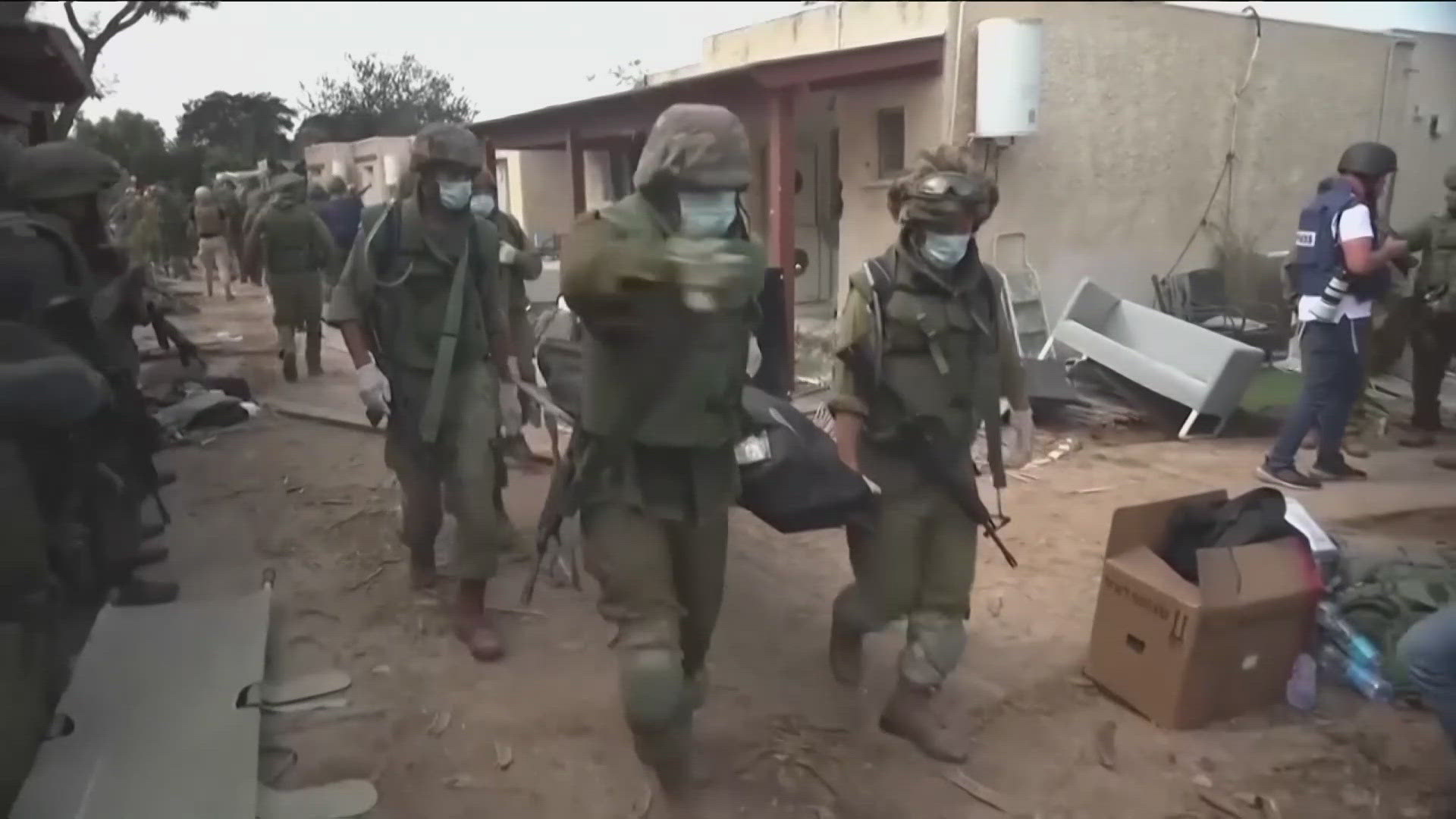BOWLING GREEN, Ohio — Oct. 7, 2024, marks one year since at least 1,200 people in Israel were killed in terror attacks by Hamas members, which in turn sparked a retaliatory war in Gaza, subsequently killing thousands more.
While the current war has reached a grim one-year milestone, Dr. Marc Simon, chair of the department of political science at BGSU, said to really understand the war, we have to go back to when this conflict began decades ago.
The state of Israel and the surrounding territories have been at odds for years, dating back at least to when the United Nations General Assembly passed a resolution on Nov. 29, 1947, calling for the partition of Palestine into separate Jewish and Arab states. The state of Israel, created in part as refuge for Jewish Holocaust survivors, was officially established on May 14, 1948.
"The countries around Israel really rejected this. They felt like this was colonialism - you know, the people are coming in and getting their own state and the people who live there don't have a state now," Simon said.
Tensions ebbed and flowed throughout the decades, and during the Six-Day War, Israel captured and occupied the Gaza Strip before withdrawing in 2005. The withdrawal was unilateral and did not result in a peace agreement.
Simon said Palestinians felt forced to pursue their rights, some peacefully and others with violence.
"There are two factions, and the violent Hamas faction has continued to use violence and Israel has retaliated," he said.
On Oct. 7, 2023, Hamas conducted an attack unlike any other it had previously conducted, Simon explained.
"This was such a horrific terrorist attack (with) 1,200 killed, plus hostages (taken) that the Israeli public and the leadership said, we can no longer tolerate this (Hamas) group controlling Gaza (and) we are going to go wipe them out," Simon said.
Israel responded to the Oct. 7 attack by invading the Gaza Strip. War was declared and Simon said tens of thousands of lives were lost, many of those being civilians.
As two Iranian-backed violent militias showed their support for Hamas, Israel recently attacked Hezbollah in Lebanon, killing Iranian allies.
"Iran also backs the … Hezbollah and the Houthis and others. And in sympathy to the attacks in Gaza over the last year … Hezbollah and Houthis have been launching missiles into Israel," Simon said.
Now, one year after the Oct. 7 Hamas attack that sparked counterattacks, the world waits to see if the conflict between Israel and Iran will escalate.
"(With) two militarily very powerful countries - Iran is a huge country with lots of resources and lots of military (and) Israel is the strongest military in the region - that could be a really bad war," Simon said.

